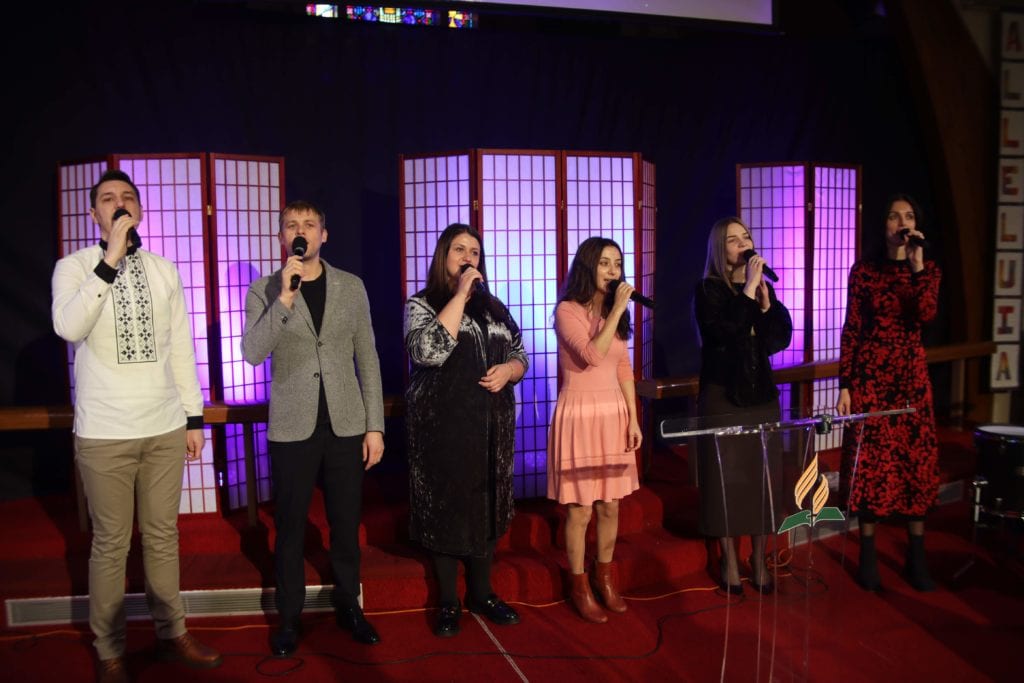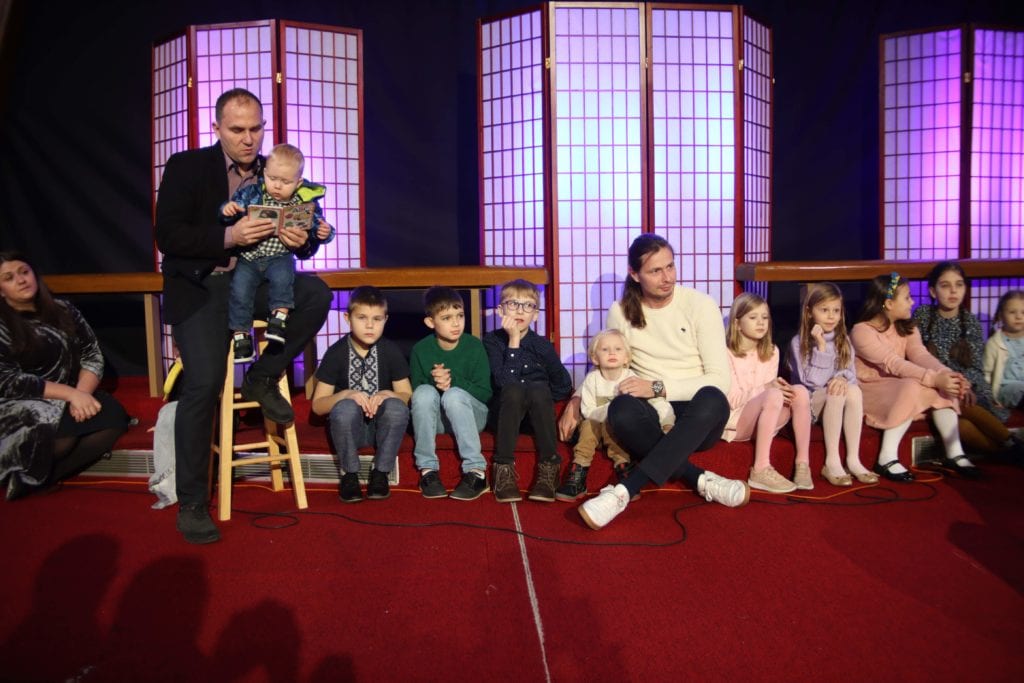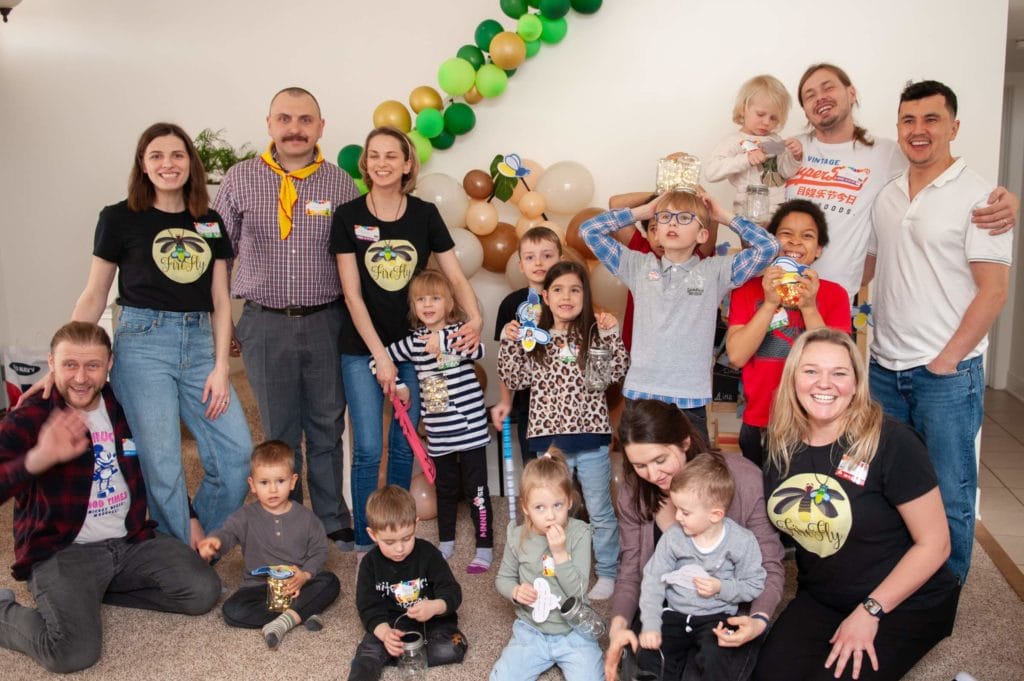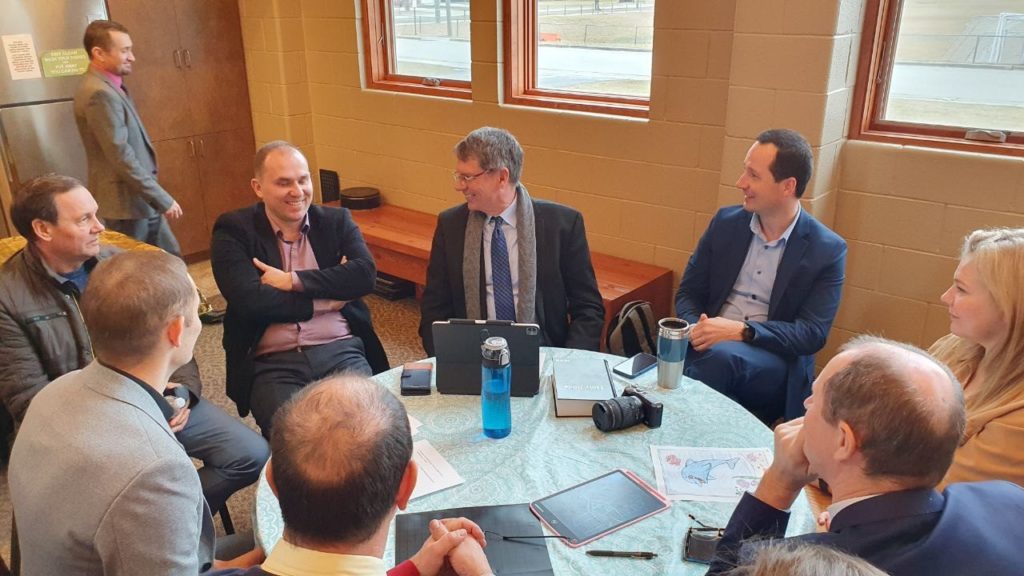
At 5:00 a.m. on February 24, 2022, Vitalii Hanulich awoke in his hometown of Bucha, Ukraine, to missile explosions and his phone vibrating with incoming messages from friends and family. That was when he knew the war had begun.
February 24, 2022, will go down in history as the day Russia invaded Ukraine, creating a critical boiling point in an already destructive conflict that had been escalating since 2014. As a result, Europe faced the largest refugee crisis since World War II.
Nearly 80,000 Ukrainian refugees have found asylum in Chicago and its surroundings in Illinois, United States, marking the beginning of a new chapter in their lives. Among that number are dedicated Seventh-day Adventists like Hanulich, eager to find active community and peaceful refuge in one of Chicago’s Adventist churches.
The Hope Seventh-day Adventist Church has been a mainstay in Park Ridge, Illinois, for many years, providing a space of worship and fellowship. The refugee crisis within Chicago has become a new mission field, doubling the church’s attendance and prompting a new and exciting offshoot of the church to develop.
The congregants, many of whom are Ukrainian, rejoiced at the opportunity to extend aid to the families and individuals in need of support and community. Members took in families, offered the use of their cars, and aided in employment. According to pastor Russ Drumi, “Members have helped co-sign for apartments; I’ve personally co-signed for quite a few apartments. [Congregants] have placed their names on accounts for electricity, water, and car bills. You see, the refugees had to leave everything, their businesses, their homes — they have no credit history.”
Carolyn Schneider, who attends Lombard Seventh-day Adventist Fellowship Church and is an active member of her local Rotary club, heard about the influx of refugees attending the church from a Lake Union Herald broadcast and reached out to Drumi. Within weeks she had donated 150 pounds of dried beans to the church and connected with other members of her Rotary club.
Though the club is a non-political organization, thus preventing organizational donations to the church, individual members were quick to contribute, partnering with Exodus World Service to create Welcome to America kits consisting of kitchenware, toothpaste, toothbrushes, toolkits, and other necessities.
This is only a small portion of the aid extended by Schneider, who is adamant about following Christ’s example of practical outreach through the Rotary club and other organizations. This outreach is more than simple acts of kindness; it is an active investment in those whose lives have been forever altered by war. Such Christian discipleship has cushioned the transition from Ukrainian citizens to refugees to new members.
Far from passive recipients, the refugees were quick to step into the fold, becoming active participants. As it stands, 70 to 80 refugees have joined the church, with two new families arriving nearly every week.
Vitalii Hanulich was one of the refugees who was ready and willing to contribute. He is currently one of the pastors of the church and an Adventist Development and Relief Agency (ADRA) project manager with the United Nations, helping with the monthly distribution of 4 million kilograms (8.8 million pounds) of food to Ukraine. He also plans to make use of his psychology degree, partnering with other members to offer group therapy for those suffering from post-traumatic stress disorder (PTSD).
The new members have stepped up as music leaders, developed Pathfinder groups, Bible studies, and Friday union meetings, and organized picnics, potlucks, and numerous events for all to enjoy. The result has been a thriving church that has grown beyond its initial origins.




The church is named Hope Seventh-day Adventist Church. This highlights a core factor in the decision to plant a new church. Another reason for a new church is founded in language. Though all are Ukrainian citizens, many of the refugees are a mixture of different nationalities, some of whom speak Russian as their first language, others Ukrainian, while still others have a combined understanding of both. The result is a linguistic barrier the church must navigate. According to Drumi, “It’s still very personal and sensitive, but the divide is linguistic, not spiritual.”
As it stands, services are a mixture of both Russian and Ukrainian. The goal of the new church plant is to be an independent extension of the Hope Seventh-day Adventist Church, allowing for services and events to be held in Ukrainian. The Illinois Conference has supported the church plant both spiritually and financially, providing funding as well as aiding in the search for a new church property to rent and a part-time pastor.
Hope Seventh-day Adventist Church is a community made up of Ukrainian immigrants. The most recent wave of immigration has created two groups within the church. The first group is Ukrainians who came to the United States in previous decades and have had years to assimilate. The newer group is refugees who have fled war and the devastation of their homeland, losing family, friends, and community in the destruction. One group left on their terms, and the other left in desperation; however, both left in pursuit of a better life.
Though the circumstances of their relocation are different, both are faithful believers ready to commit to their church. Both Drumi and Hanulich are eager to confirm that the soon-to-be-two churches will remain a unified community, continuing their partnership in church events and fervent outreach to new refugees.
The purpose of the new church plant is to provide options for refugees who are eager to be incorporated into a church community that speaks their first language, fostering a deeper sense of belonging and allowing those leaving a war-torn homeland to find a port in a storm. Hanulich states, “Many of us lost everything in the Motherland, but received huge support from other countries like the USA or European countries like Poland and Germany. It is also one of the main achievements — uniting many nations around good things, it gives us a second chance for a new start, a chance to get our own small personal victories.”
The original version of this story was posted on Lake Union Herald.